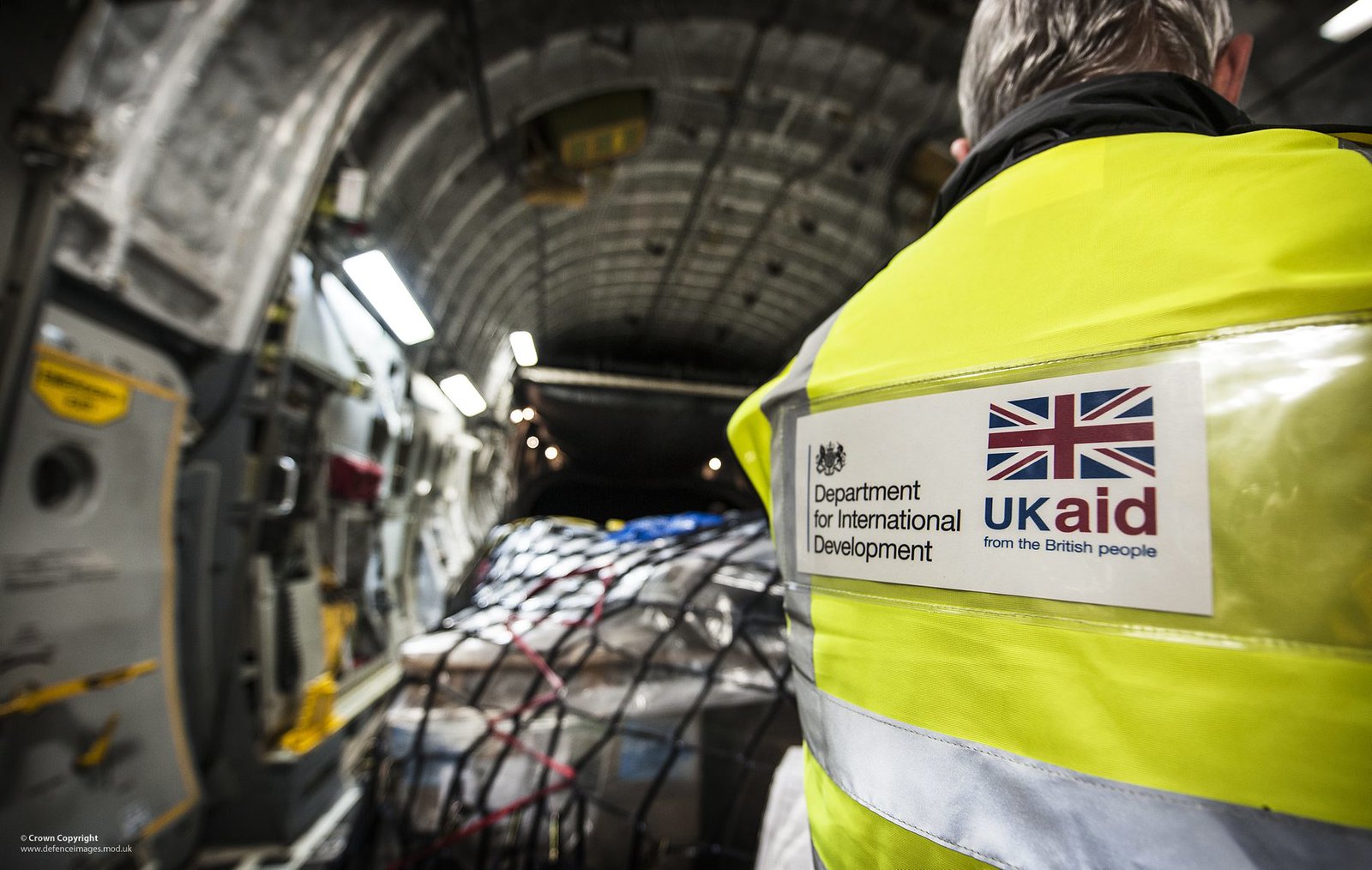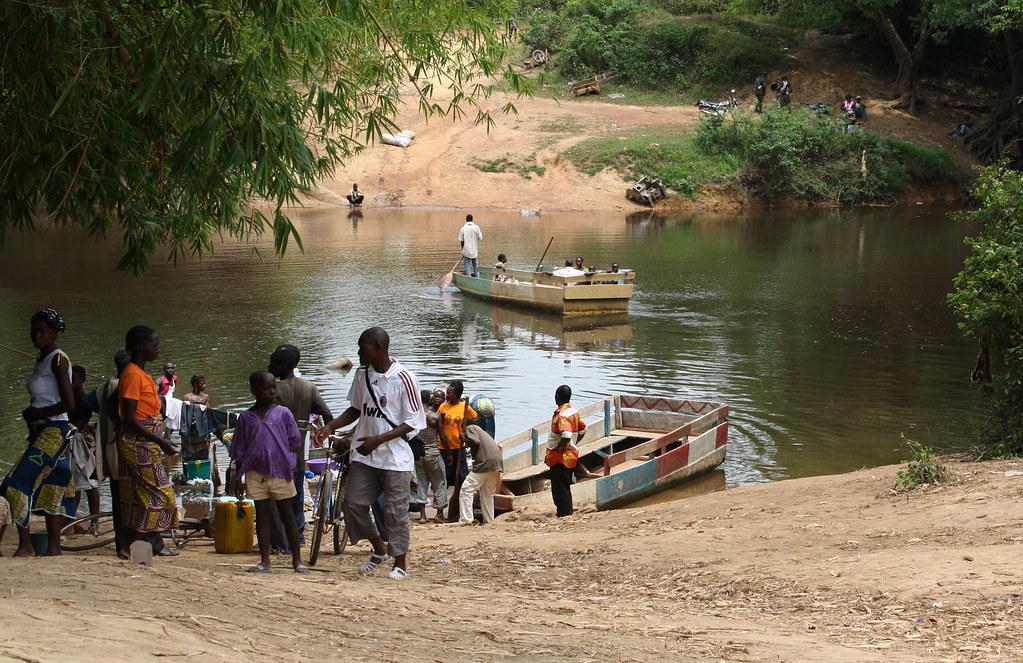Photo: Flickr/Creative Commons - DFID
This blog first appeared in the Daily Telegraph
Take a look at TI's Corruption Perceptions Index and something will strike you immediately: some of the countries that receive most international aid are those where the governments are most corrupt. Afghanistan, for example, or Pakistan, or Somalia.
What do we conclude? Well, an easy conclusion would be: don't send the money there, it will just get stolen. But that's wrong on many levels.
Here's a simple analogy. Imagine a town in England - call it Bribetown - which has been devastated by flooding. The government wants to put in a few million pounds both right away and in the long-term to clean up and then to re-build the flood defences. But a couple of years ago, one of the councillors was convicted of corruption - and doubts still linger over some of the others. Do we say to the citizens of the town 'bad luck, the money would just get stolen, so dip into your own pockets instead'? Of course not. That would be punishing people twice over. You make sure they get the money: channel it through the right places, monitor its use, let people know how much money has been given so they can themselves highlight if it's going astray, and so on.
It's the same in most developing countries that desperately need aid. It is not the fault of the citizens if they have a corrupt government; and if you take away the aid, you punish them twice. We have a responsibility, both to taxpayers in the UK and to the citizens of the countries to which we send the money, to make sure that any money that is sent is not siphoned off. And there are four proven ways to do that.
First, make sure all aid money has maximum transparency - so the donors publish how much has been sent and what it should be spent on, and the recipients - the people of the town that should have a clinic, or the farmers who were to be given training - know how much they should have received. Giving people access to easily comparable, understandable and accessible data allows both them and the donors to hold those in power to account. As it happens, the UK's Department for International Development is the global standard-setter in such transparency.
 Secondly, know enough about where you are sending the money that you can avoid the obvious pitfalls. If the local Afghan governor is notoriously corrupt - why on earth would you use him to distribute aid? Alternative channels almost always exist, even if it can be politically difficult to use them (Who wants to offend the governor? Well, perhaps it's time to start doing just that). Thirdly, we should work to strengthen the institutions that do work and need to work. In most countries, the outright corrupt are a small elite, and the majority of the population are honest and decent - including those working in the public sector. They want a functioning healthcare system, a police force and judiciary that do not take bribes, just as much as we want them as donors. There are well-tried ways of doing this, and we should do everything we can to support such institutional integrity. Finally, transparency in the government, a free press and a thriving civil society are proven ingredients for reducing corruption; and many of the most impressive and courageous corruption fighters come from developing countries. These ingredients need to be supported by international donors, and that is the kind of thing that can be a condition of handing over the money.
Secondly, know enough about where you are sending the money that you can avoid the obvious pitfalls. If the local Afghan governor is notoriously corrupt - why on earth would you use him to distribute aid? Alternative channels almost always exist, even if it can be politically difficult to use them (Who wants to offend the governor? Well, perhaps it's time to start doing just that). Thirdly, we should work to strengthen the institutions that do work and need to work. In most countries, the outright corrupt are a small elite, and the majority of the population are honest and decent - including those working in the public sector. They want a functioning healthcare system, a police force and judiciary that do not take bribes, just as much as we want them as donors. There are well-tried ways of doing this, and we should do everything we can to support such institutional integrity. Finally, transparency in the government, a free press and a thriving civil society are proven ingredients for reducing corruption; and many of the most impressive and courageous corruption fighters come from developing countries. These ingredients need to be supported by international donors, and that is the kind of thing that can be a condition of handing over the money. 
There are a couple of other things that need to be done, both of which are within our power in the UK. Most obviously, we need to stop British companies paying bribes overseas. That merely embeds local corruption, further damaging the economy and reinforcing the power of those corrupt officials who are on the take. The result is economic stagnation and a population deprived of vital services such as healthcare. Bribe-paying by British companies therefore reinforces the need for aid. It's the same when our own government cosies up to corrupt politicians and public officials: allowing them to grandstand on the international stage, instead of making them pariahs. And that's the other thing we could do: make sure that if a corrupt politician does steal the health or education budget, they are not able to use it to 'invest' in the UK. The house in Kensington, the luxury yacht, the part-ownership of the football club, all put in the best possible light by a compliant London PR company - it is in the government's power to put a stop to all that.
Of course, not all aid money will get through. We give aid to countries where those in power are corrupt precisely because that is where life is most miserable for ordinary people. Those are very difficult conditions to operate in. Like the mythical flooded community of Bribetown, you may find over-charging contractors, cronyism in the contracts, some shoddy work, and at times out-right fraud and theft. As a society we need the maturity to understand that some money will go astray. Of course we should minimise it, and strongly go after anyone who does steal it. That can certainly be a condition of future help.
When people are desperately in need of our help, the answer should never be that because they suffer under a corrupt government, we should fail to help them. And let us remember it is not just altruism. As more and more countries disintegrate and refugees flood into Europe, we are beginning to see the fall-out of propping up corrupt governments and failing to help citizens within their own countries. We need to direct our aid wisely, not to stop it.